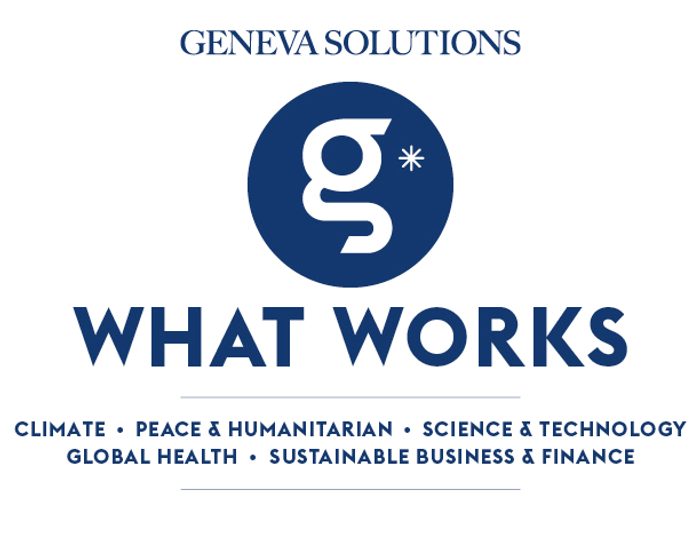Good morning, this is Paula. At a recent gathering of disaster risk reduction experts in Geneva, I heard from a Guatemalan campaigner whose village lost everything due to a devastating hurricane, and asked why inhabitants were not informed ahead of time.
He decided to do something about it. But with aid cuts, it is unclear where funding will come from to avert billions, if not trillions, in catastrophic losses globally. |

|

A view from a US army helicopter of a debris-filled mudslide which days earlier engulfed part of the town of Panajachel, Guatemala, 10 October 2005. (Keystone/AP Photo/Brennan Linsley)
|
|
Earlier this month, conference staff ushered journalists out of a meeting room at the International Conference Centre Geneva after a quick photoshoot. Inside, a group of sombre-looking ministers from around the world had gathered for the Global Platform for Disaster Risk Reduction to share updates on efforts to fund programmes aimed at averting and mitigating the impacts of disasters.
Official statements from the behind-closed-doors session recognised a “financing deficit for preparedness”, but stopped short of pointing fingers. Some countries presented domestic plans including government-backed insurance strategies, while others highlighted multilateral climate funds, which many developing countries lament are sorely under-resourced. Still, major funding pledges were nowhere to be seen.
The United Nations Office for Disaster Risk Reduction, which co-hosted the event with Switzerland, urged more investment in disaster preparedness and prevention, stating that every dollar spent can save up to $15 in post-disaster recovery.
But for now, the costs of disasters are gigantic. A recent report estimates the annual direct cost of disasters globally at over $200 billion in 2025, with the figure rising to over $2.3 trillion when including indirect losses, such as to health, education, livelihoods and ecosystems.
Read the full story on Geneva Solutions.
|
|
|
🧪MAKING SCIENCE WORK AGAIN.
Under attack by the Trump administration for certain terminology considered to promote “woke” ideas while struggling from funding cuts, environmental scientists from around the world gathered on Tuesday in the quiet of a nearby Swiss mountain resort to nominate three candidates for the world’s most generously funded climate research award.
|
|
The Frontiers Planet Prize,
backed by companies and philanthropists through a Lausanne-based foundation, aims to “mobilise science for a global green renaissance”, and find “scalable science solutions for a healthy life on a healthy planet”, its director, Jean-Claude Burgelman, told participants in Villars.
|
|
Big trade picture.
The University of Sydney’s Arumina Malik was chosen for her work that goes beyond the country-focused UN Sustainable Development Report to highlight how trade impacts the environment and social development. The findings may help shape policies for the loss and damage fund.
Zahra Kalantari of the Saudi-based KTH Royal Institute of Technology, won for her research on nature-based solutions in cities that could help offset emissions, by up to 25 per cent. Unlike the traditional focus on capturing emissions through vegetation, Kalantari looks at how changes in city-dwellers’ behavior and their consumption patterns matter for climate action.
|
|
Women on board.
The two were the first women– themselves working with other female co-authors – to win the prize since it was first launched three years ago. Last year, a prize finalist spoke out about the gender imbalance, prompting a letter-signing campaign critical of the selections.
|
|
US scientist picked.
The nomination of US-based climate and agricultural data researcher Zia Mehrabi – came as a welcome boost as US science academies grapple with the loss of government support. US institution officials attending the Swiss event told us that funding to some departments has been halved.
The University of Colorado Boulder scientist won for his research into how diversified farming practices could reduce climate impacts while improving livelihoods.
|
|
Here’s what else is happening
|
|
GS news is a new media project covering the world of international cooperation and development. Don’t hesitate to forward our newsletter!
Have a good day!
|

|
|
Avenue du Bouchet 2
1209 Genève
Suisse
|
|
|
|








